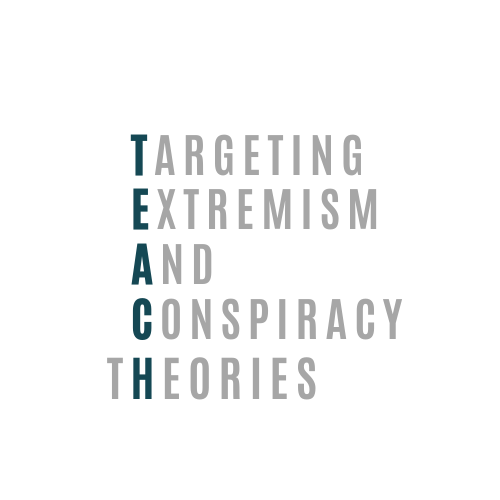


The Erasmus + funded TEACH (Targeting Extremism and Conspiracy Theories) project is having a closer look into the field of adult education and on follows the aim to identify the needs of institutions in adult education for dealing with conspiracy theoretical mindsets. A transnational and multidisciplinary team of experts from theory and practice from Germany, Austria, Sweden and Bulgaria has developed an instrument (the TEACH Survey) for measuring and continuous monitoring of the presence of conspiracy theories among participants of adult education classes as well as a TEACH manual for the autonomous implementation of the TEACH Survey in adult education institutions. Additionally, the TEACH handbook will enabled adult educators to accurately identify and react to verbalized conspiracy theories, by using the educational concepts developed in this project.
Project Manager

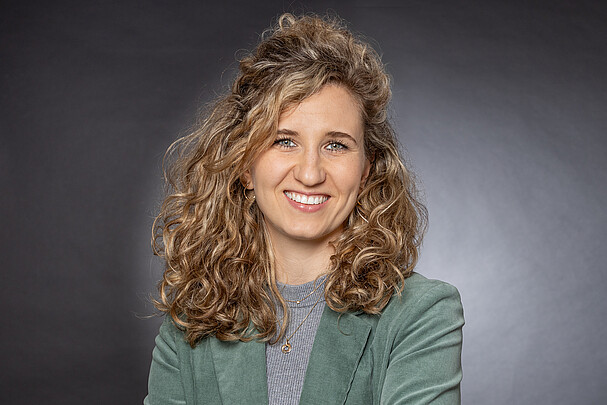
30167 Hannover


Project Lead
Project
Project summary
Conspiracy theories and misinformation have a much stronger impact on public discourse than they did just a few years ago and are now present through a wide range of information channels to a large part of German as well as European populations (Butter 2018). These theories often challenge the foundation of the democratic order, fundamental human rights and European cooperation. Especially regarding the growing number of older adults believing in conspiracy theories, adult education institutions are coming to the fore.
In the context of the growing presence of conspiracy theories in pan-European space, it is important to find out to what extent these phenomena also in adult education and to develop training opportunities that understand the fight against conspiracy theories and misinformation as a cross-sectional task of adult education in all areas, but especially in political and cultural education, in dealing with these theories.
Therefore, in this project:
- the needs of adult education institutions in dealing with conspiracy theories shall be examined
- instruments for continuous monitoring should be provided
- a concept will be developed enabling the educators to deal with the theories that are relevant in their context.
Particular emphasis is placed on European co-operation in the development to ensure an application of outputs in all EU countries. The immediate target group of the project are educators of adult education. Since conspiracy theories are becoming more and more relevant for a growing part of the European society and, as already mentioned above, have become more prevalent among older people in particular, a concept is to be developed that is suitable for all teachers in adult education institutions.
The immediate target group here is educators in a leading function who will be enabled to accurately identify the needs of their educators and then react to them using the educational concepts developed in this project.
Results
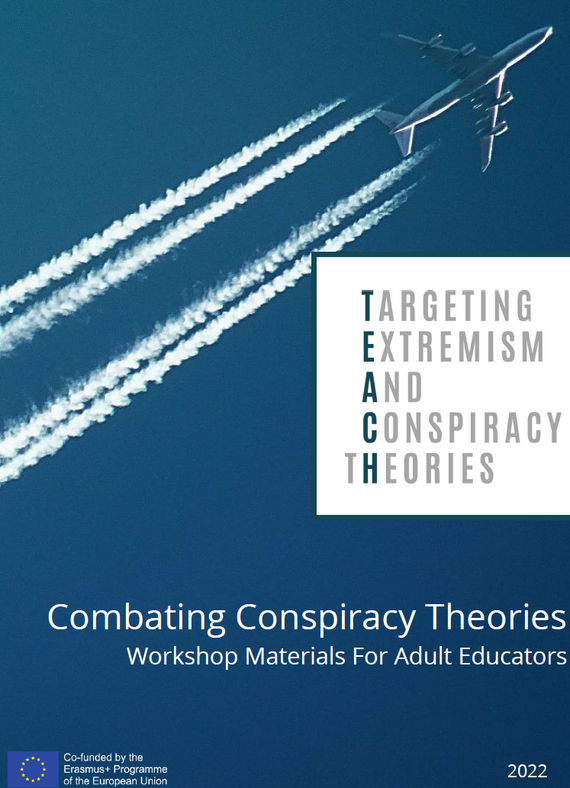
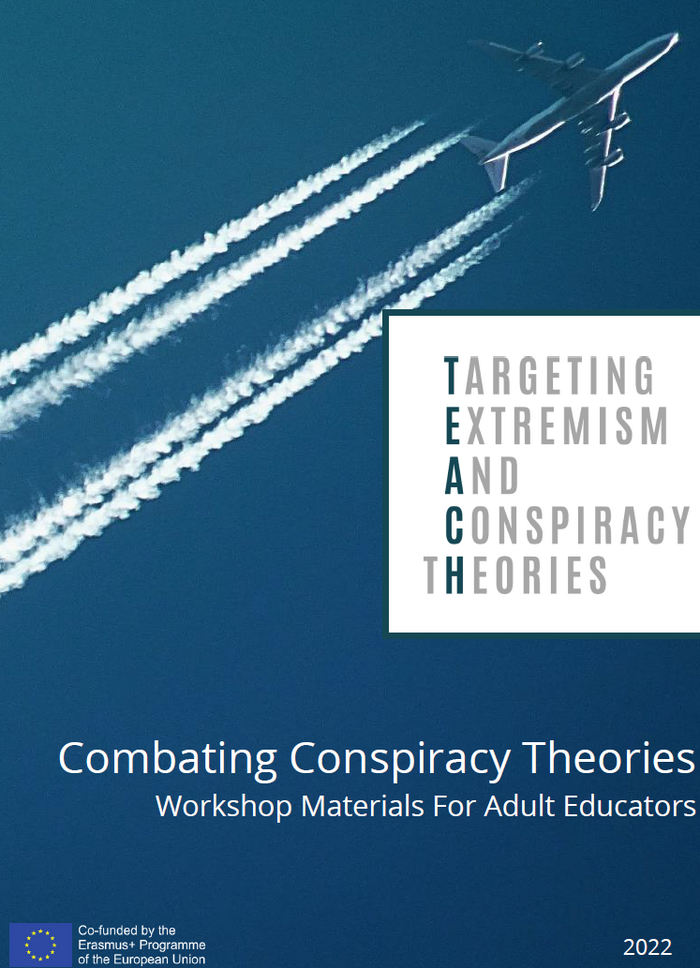
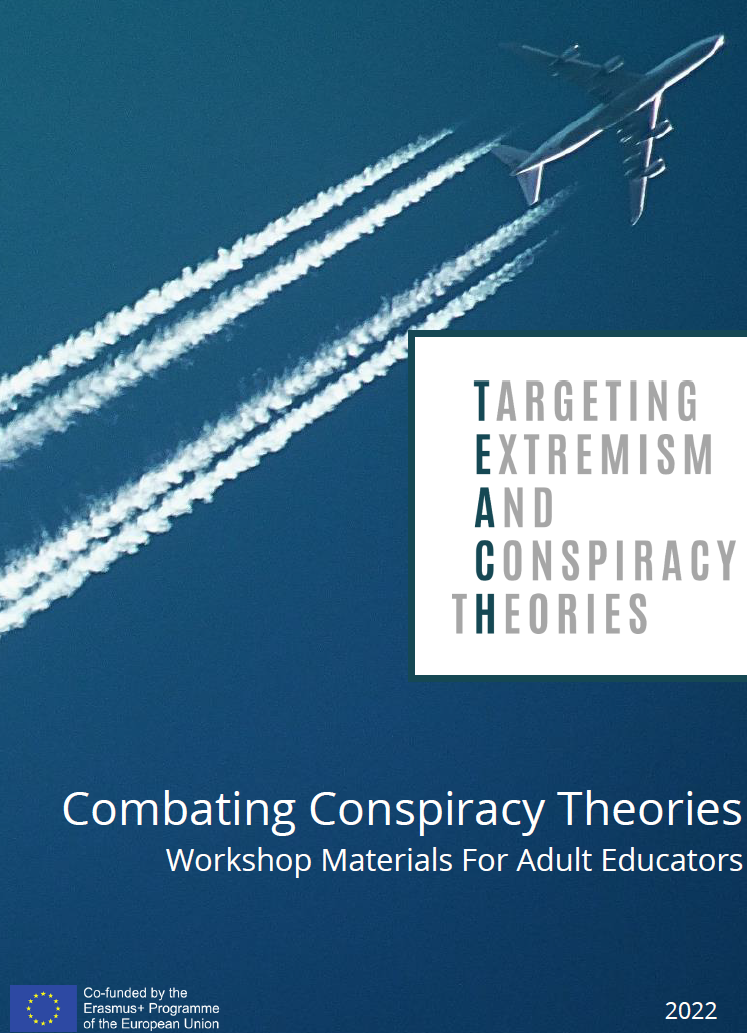



Handbook: Combating Conspiracy Theories
The TEACH Handbook “Combating Conspiracy Theories” offers an opportunity for adult educators to organise workshops in their institutions, which will not just provide knowledge on different aspects of certain conspiracy theories but also offer an opportunity to reflect on one’s ability to interact with people in the classroom who believe in conspiracy theories.
The book offers curricula for workshops to be held as inhouse-events at adult education organisations for further training of their teaching staff.
There are five different basic workshops focusing on five types of conspiracy theories:
- anti-Semitic conspiracy theories
- anti-feminist conspiracy theories
- anti-Muslim conspiracy theories
- conspiracy theories questioning science
- conspiracy theories and the media (this module also includes exercises on media literacy)
Interested in more materials for workshops in adult education institutions? Have a look into our Handbooks on National Conspiracy Theories from Austria, Sweden or Bulgaria:
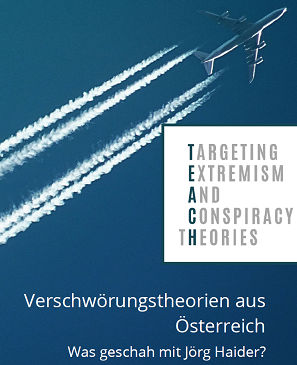


Austrian National Handbook
Conspiracy Theories from Austria. What happened with Jörg Haider?
Das nationale Handbuch für den Umgang mit Verschwörungstheorien aus Österreich: Verschwörungstheorien aus Österreich: Was geschah mit Jörg Haider?
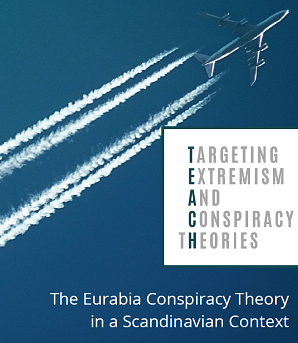


Swedish National Handbook
The Eurabia Conspiracy Theory in a Scandinavian Context
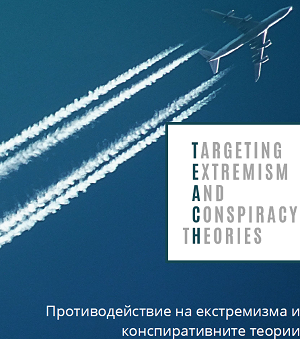


Bulgarian National Handbook
A Bulgarian National Handbook focusing on combating conspiracy theories evolving around Sinti and Roma.
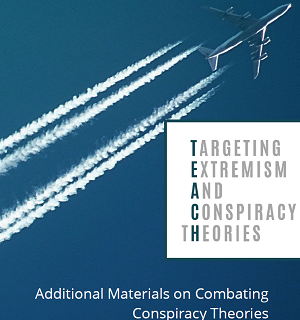


Additional Materials on Combating Conspiracy Theories
Additional Materials on Combating Conspiracy Theories provided in English.
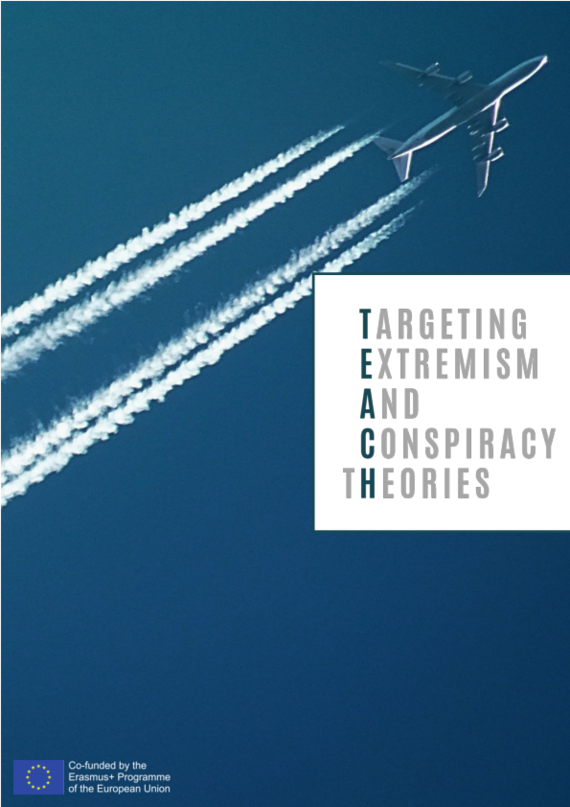
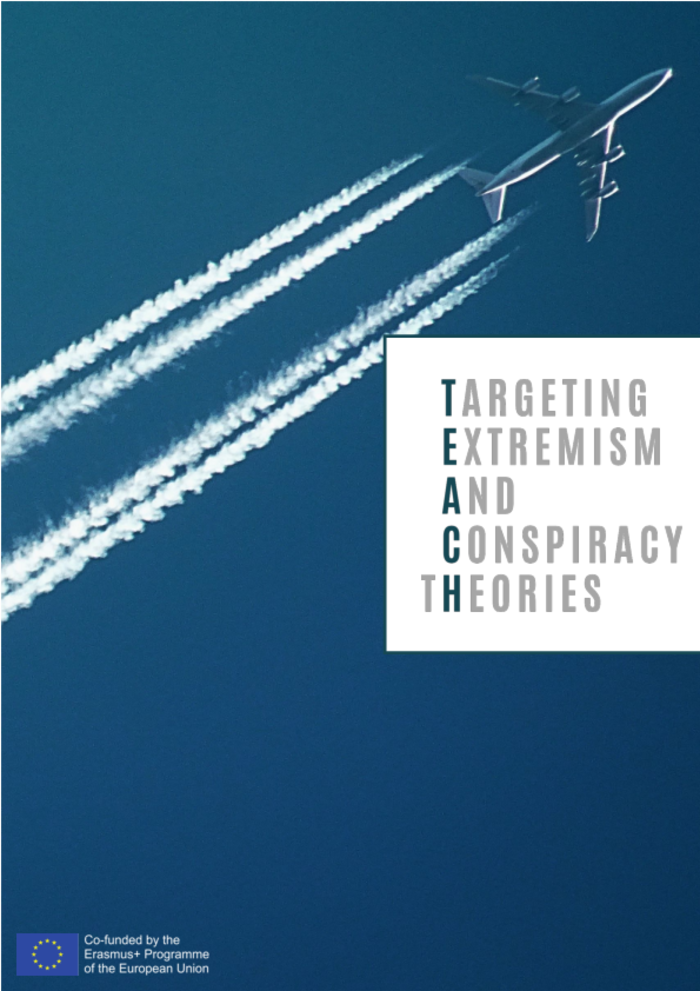
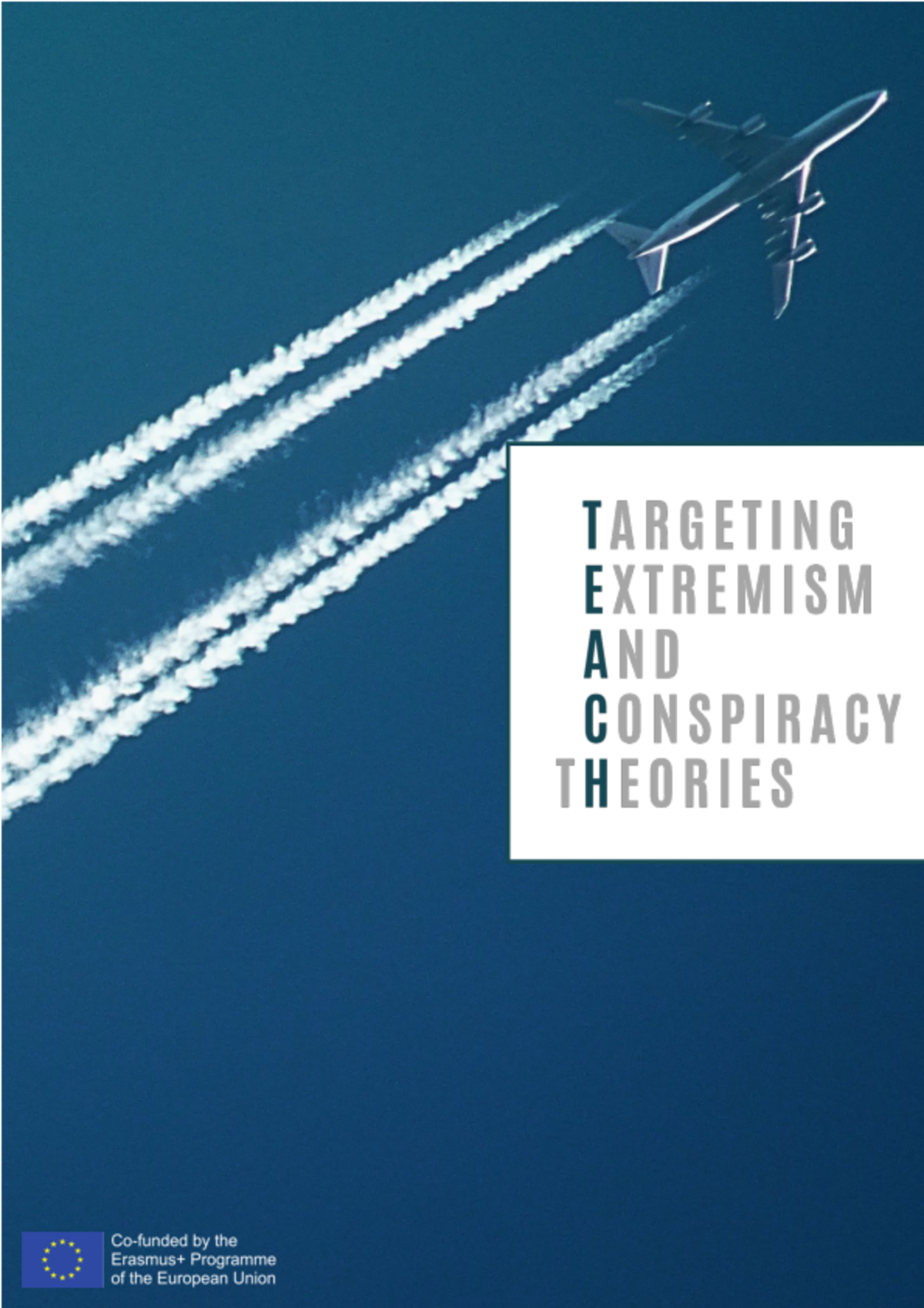
Manual for Managers of Adult Education Institutions
How often are German, Bulgarian, Swedish and Austrian Adult educators confronted with conspiracy theories?
Do adult educators believe in conspiracy theories themselves? The TEACH project has had a closer look at the influence of conspiracy theories in adult education.
Find the results of our TEACH Survey, as well as a detailed guideline on how to implement the TEACH Survey in your adult education institution and how to analyze and interpret your findings!
The TEACH consortium presents the Manual for Managers of Adult Education Institutions:
National Reports
How do reseachers in Bulgaria, Sweden, Austria and Germany define conspiracy theories? And what are the most prevalent conspiracy theories in the Bulgarian, Swedish, Austrian and German Media?...
Find the answers to these and other questions in our Reports:
Promotion Material
News & Events
News
Follow us on Facebook: https://www.facebook.com/TeachErasmus/
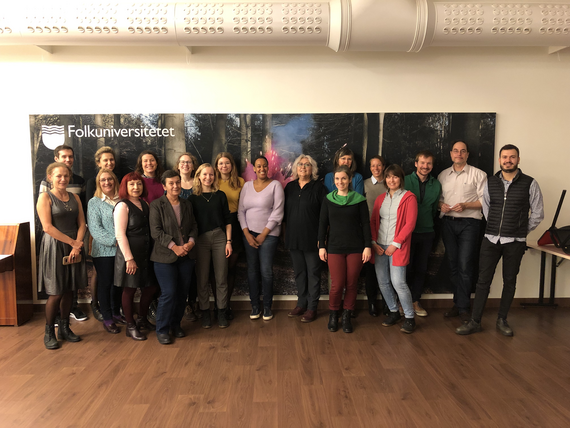
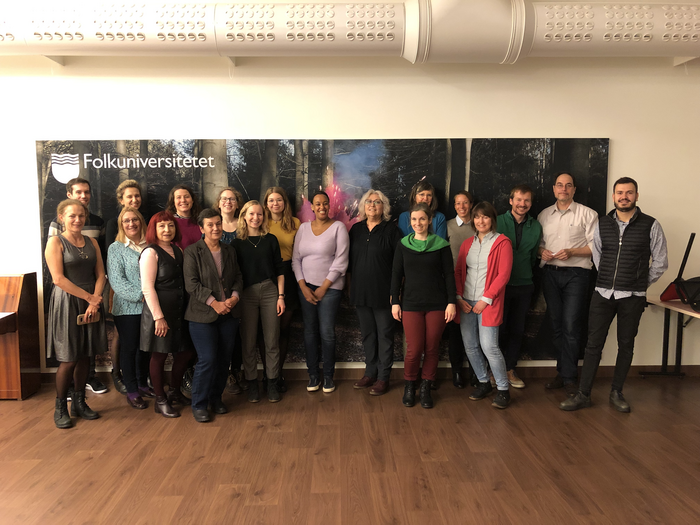
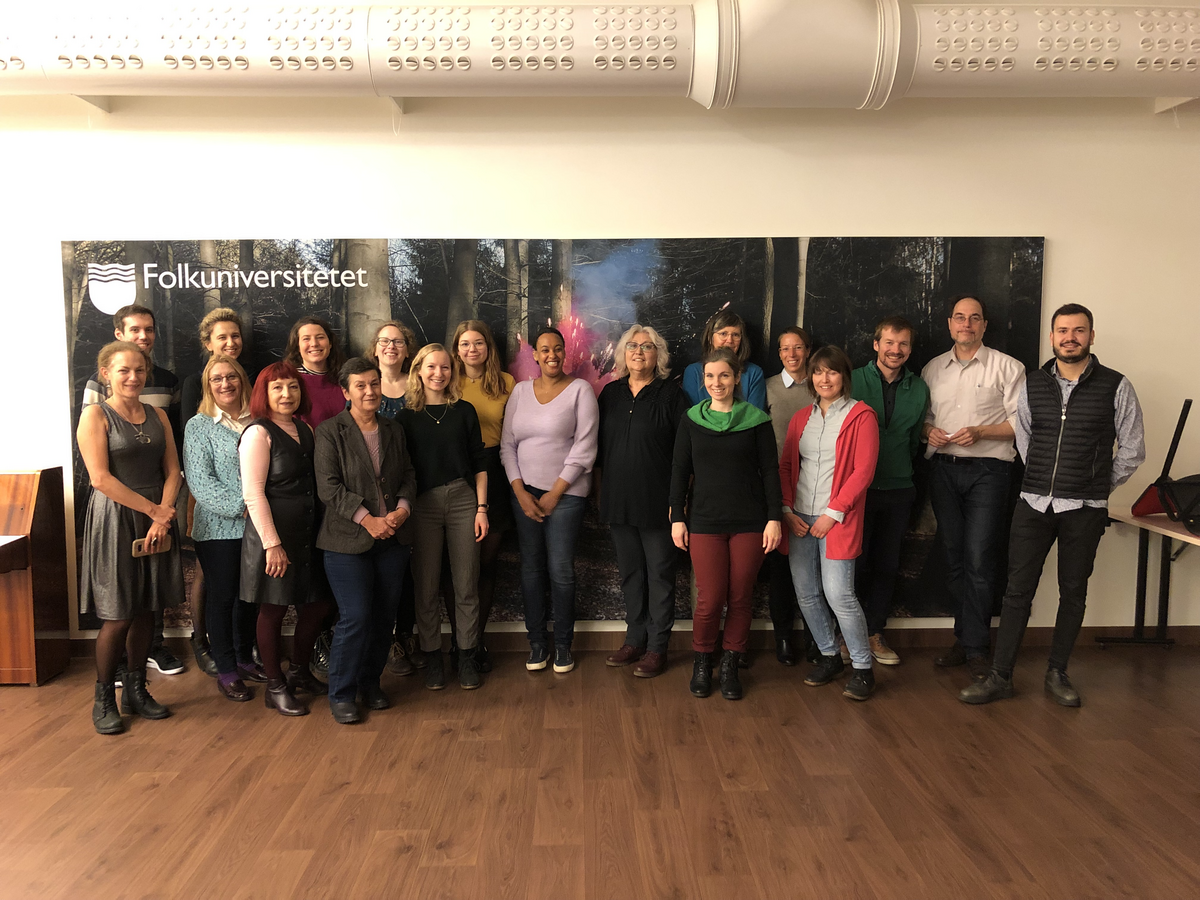
Staff Training and 3rd Transnational Meeting in Uppsala, Sweden, 2nd- 5th of November, 2021
After a long time of not seeing each other due to the Covid-19 restrictions, the partners of TEACH met again in Uppsala, Sweden. But we didn’t meet alone: Together with adult educators from Sweden, Bulgaria and Germany, we pilot-tested the TEACH handbook on dealing with conspiracy theories. After a one-year-long development phase of the handbook, we were finally able to test all ideas and materials during the three-day-long staff training.
Based on the valuable feedback from the adult educators, we will implement final amendments to our handbook, which will soon be available on this site
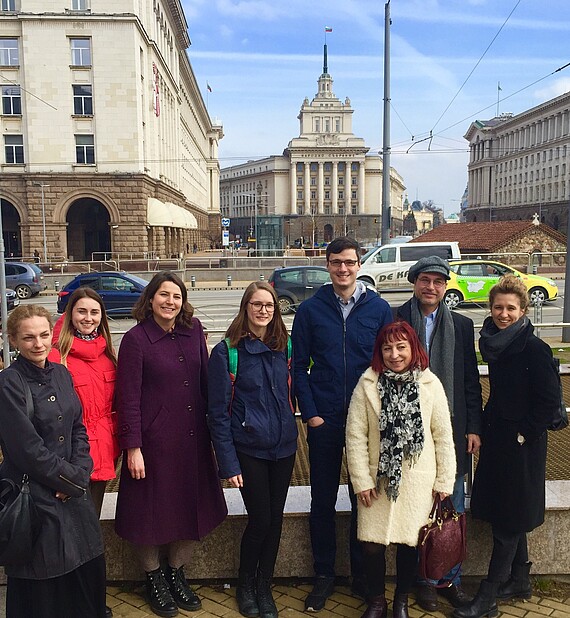
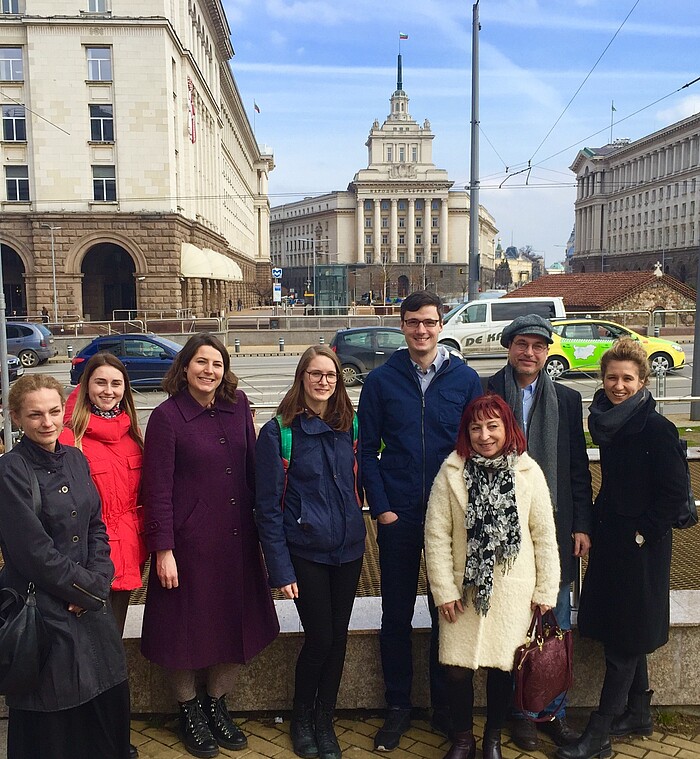
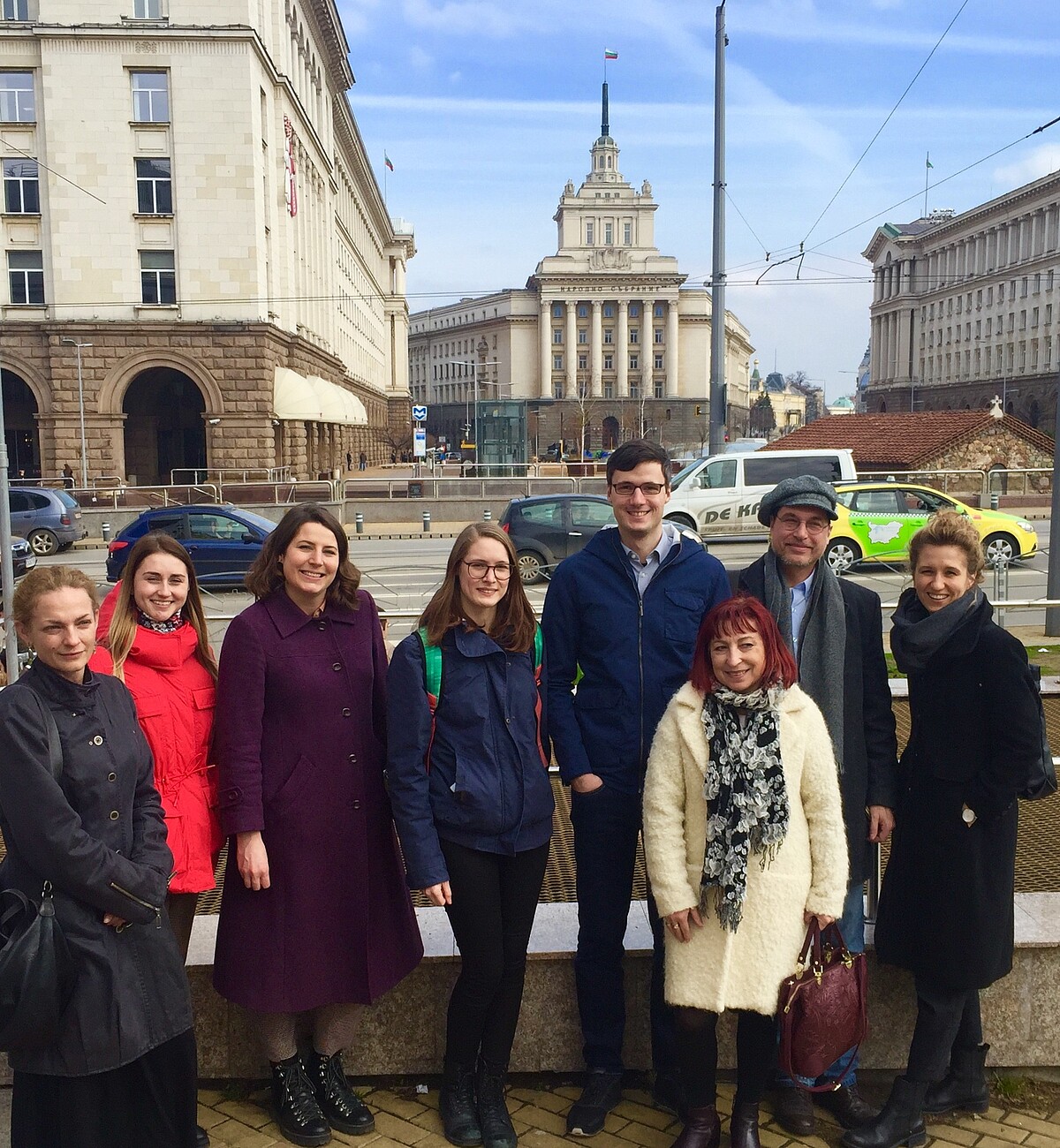
2nd Transnational Meeting in Sofia, Bulgaria, 11th and 12th of March, 2020
On 11th and 12th of March, the 2nd partner meeting took place in Sofia, Bulgaria. It was a very fruitful and productive meeting regarding the finalization of our survey. The consortium will now focus on the implementation of the survey in adult education institutions in order to measure the presence of conspiracy theories in adult education classes. In the next months, we will implement our survey in adult education institutions in Sweden, Austria and Germany.
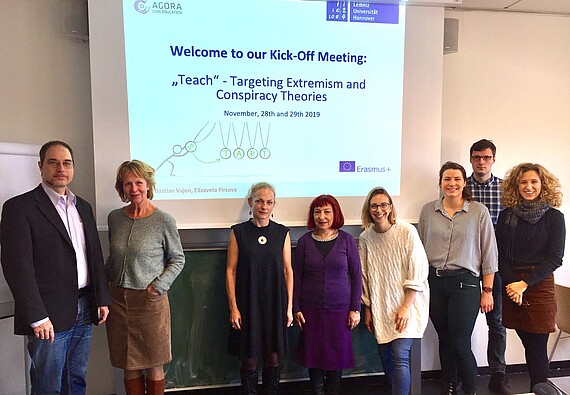
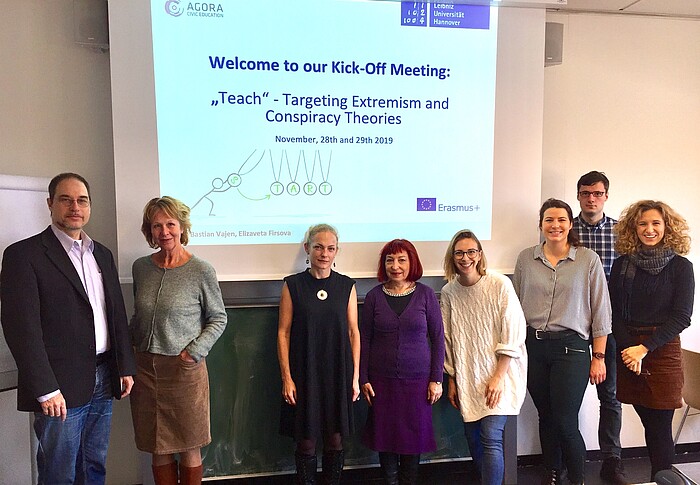

The kick-off meeting in Hannover, 28 and 29th of November, 2019
In the following months the consortium of TEACH from Austria, Bulgaria, Germany and Sweden will develop and implement a survey study on conspiracy theories and extremist mindsets in the participating countries. Based on the survey, the partners will develop further training courses which understand the fight against conspiracy theories and false information as a cross-sectional task of adult education. The developed materials will help to train adult educators in dealing with these theories. TEACH aims to assess the needs of adult education institutions in dealing with conspiracy theories as well as to develop and provide instruments for continuous monitoring. Furthermore, the program’s goal is to develop a concept that enables educators to deal confidently with conspiracy theories in their work environment.
About Us
Institute for Didactics of Democracy



As a research institute, we focus on civic education on a national and international scale. Dealing with anti-democratic tendencies and the development of tools to challenge them is one of our core competences. Within the TEACH- project, we will contribute decisively to the development of competencies of adult educators to expand their knowledge of extremism and conspiracy theories and to help them to act against them.
Contact Person: Elizaveta Firsova (firsova@idd.uni-hannover)
Website: https://www.idd.uni-hannover.de/de/institut/profil/
Democracy Center Vienna



We are an interdisciplinary research institute with 20 years of experience on our main topics: processes of democratization, digital citizenship, forms of participation and citizenship education.
Within the TEACH project we will contribute with empirical research about the relevance of conspiracy theories in Austria. We want to assist adult educators with knowledge and materials to help them to deal with antidemocratic ideas.
Contact Person: Kerstin Scheibenpflug (scheibenpflug@demokratiezentrum.org)
Website: https://www.demokratiezentrum.org/
Ethnotolerance



NGO “Ethnotolerance” was founded in 2002 by a group of lecturers from the University of Shumen. It actively works for the development of ethnical tolerance, contributes towards the development of new ideas, information dissemination and promotion of good practices in the field of social communication, civil and intercultural education. The main goal of “Ethnotolerance” is to encourage and support cooperation and knowledge between diverse groups, especially in regards to civil and intercultural education. Its projects and activities include mainly young people and students and the organization seeks a base for the mutual existence of ethnocultural societies.
Contact Person: Yanka Totseva (totseva@academyteachers.bg)
Website: http://www.ethnotolerance.org
VHS Hanover
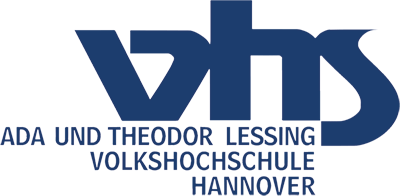


Volkshochschule (VHS) Hannover is an adult education organization affiliated to the municipality of Hannover, a town of 500 000 inhabitants in Germany’s north western province Lower Saxony. VHS Hannover provides courses in various subjects of general further education such as foreign languages, German languages (e.g. for immigrants), health and well-being, arts, everyday and personal skills, and vocational training. With about 100 salaried employees and 700 freelance teachers it is one of the larger organisations in the network of Germany’s about 900 Volkshochschulen. In 2019, VHS Hannover celebrated the 100th year of its existence.
Contact Person: Christian Geiselmann (Christian.Geiselmann@hannover-stadt.de)
Website: www.vhs-hannover.de
Folkuniversitetet



Folkuniversitetet offers a wide range of adult education courses throughout Sweden and in several European countries. Our idea is to give people the tools to have a richer life through knowledge and creation.
Contact Person: Anna Petersson (anna.petersson@folkuniversitetet.se)
Website: http://www.folkuniversitetet.se/



This project has been funded with support from the European Commission. This communication reflects the views only of the author, and the Commission cannot be held responsible for any use which may be made of the information contained therein.
Submission Number: 2019-1-DE02-KA204-006167



